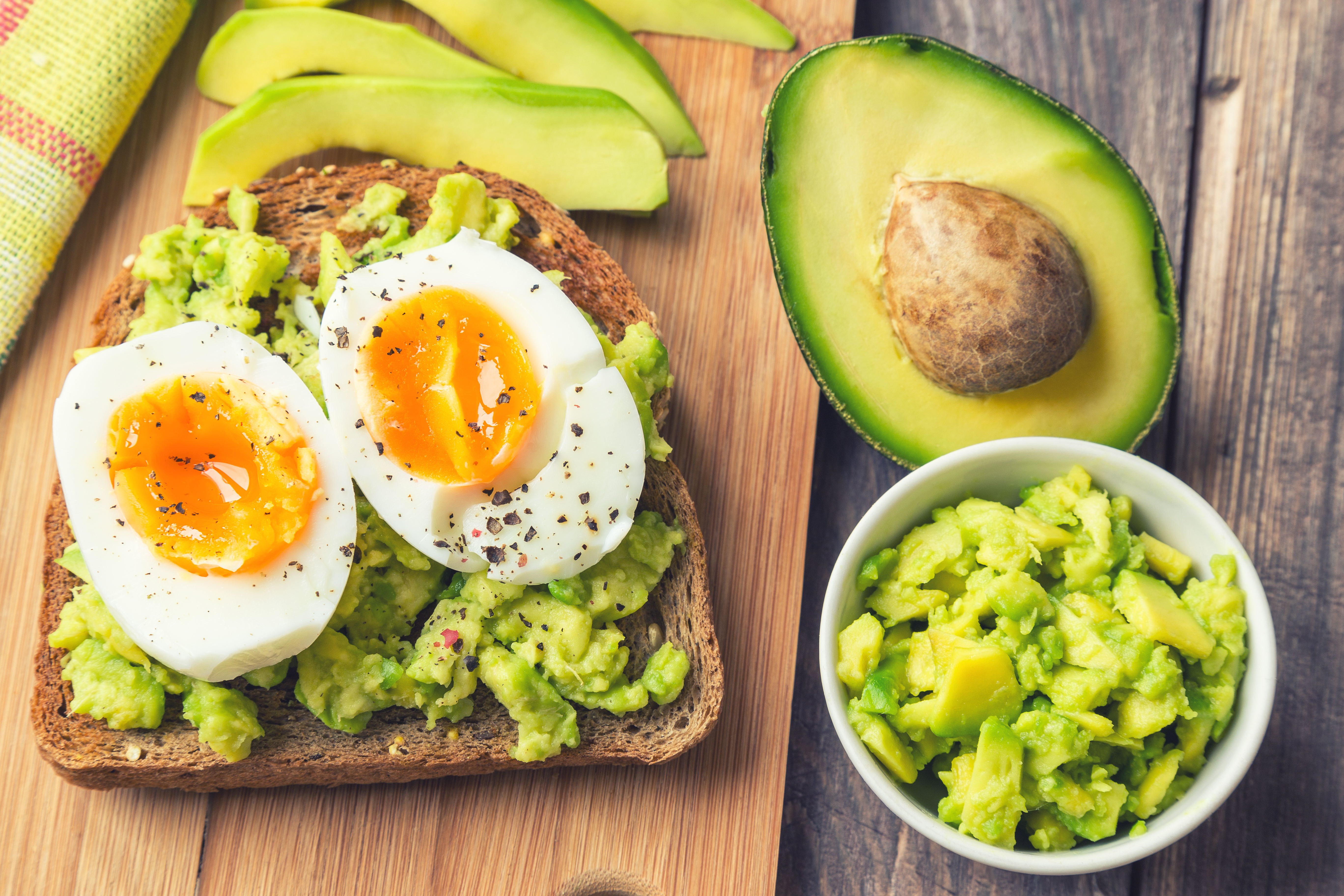Avocados are a creamy, savory fruit that, unlike most fruits, are low on the glycemic index (rating less than 15) and won’t spike your blood sugar. While many sweet fruits are high in carbs, avocados are high in healthy fats, making them a healthy addition to your diet.
Here are some of the many proven health benefits of avocado:
- Nutrient-dense
Often referred to as a superfood, avocados contain more than a dozen different vitamins and minerals, including vitamin K, folate, vitamin C, potassium (more than bananas!), vitamin E, iron, magnesium and vitamins B1, B2, B3, B5 and B6, to name a few. They contain two grams of protein, 15 grams of healthy fats, seven grams of fiber, less than a gram of sugar and just two net carbs.
- Heart-healthy
Avocados are loaded with monounsaturated fatty acids, including oleic acid, a heart-healthy fat that has been linked to reduced inflammation. Avocados are so high in fat that more than three-quarters of the calories in avocados come from healthy fats. Eating avocado can also help lower cholesterol and triglyceride levels, reducing your risk of heart disease.
- High in fiber
A 3.5 ounce serving of avocado contains seven grams of fiber — 27 percent of the recommended daily amount. Fiber helps reduce blood sugar spikes, can contribute to weight loss and has been linked to a lower risk of many health conditions.
- Boost nutrient absorption
Did you know that many nutrients, such as vitamins A, D, E and K and antioxidants, need to be combined with fat in order for your body to absorb and utilize them? Adding avocado or avocado oil to a meal with other plant foods can increase the nutrient value of those foods.
- Weight-loss friendly
Avocados may be high in fat, because they contain healthy fats and are packed so full of essential nutrients, eating avocados can leave you feeling more satisfied and therefore help you eat fewer calories and stick to a healthier diet. The high fiber and low carb count in avocados can also help promote weight loss.
- Reduce risk of chronic disease
Eating foods that are high in fiber, such as avocado, has been linked to lower risks of heart disease, diabetes, stroke, hypertension, obesity and gastrointestinal disease.
Avocados may be an acquired taste for some, but there are plenty of ways you can incorporate avocado into your diet besides simply scooping them up with a spoon. Here are a few favorites:
- Make them into guacamole mixed with salt, garlic, lime, tomatoes and onion.
- Use soft, ripe avocados in place of mayonnaise in chicken or egg salad, or as a spread on sandwiches and burgers.
- Cook with avocado oil instead of vegetable or even olive oil.
- Spread mashed avocado on toast instead of butter.
To pick the perfect avocado, hold one in the palm of your hand and squeeze it gently. A ripe avocado should give slightly when gently squeezed, but should not feel too soft or mushy. If it is firm when squeezed, give it a few days to ripen. When you slice into an avocado, look at the color. A ripe avocado should be dark near the skin and pale green near the center. If it has black or brown spots or is stringy inside, it should not be used.
Making small changes in your diet, such as adding in a heart-healthy, weight-loss friendly food like avocado, can help you reach your health and weight loss goals.




